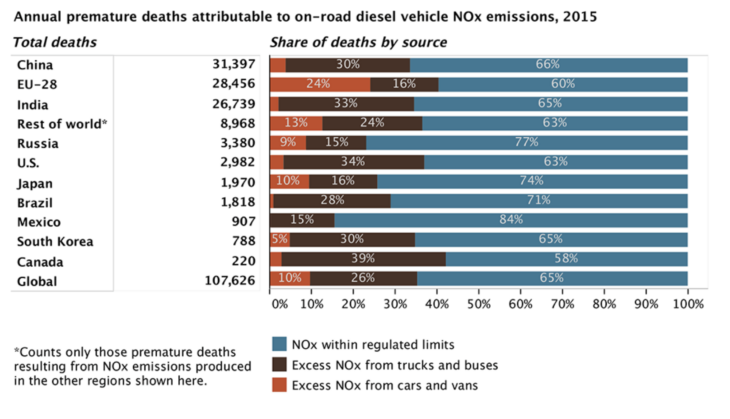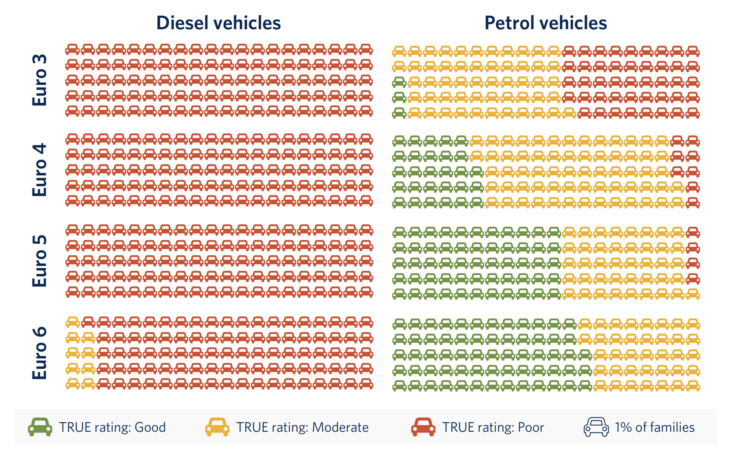- Now is the time to consolidate the gains we have made in terms of cleaner air.
- Opening up and repurposing our streets could lower air pollution and improve the health of millions – especially children.
- We can do this, but we will need creativity and political will to effect real change.
We live in turbulent times. The gap between the world we want and the world we see feels simultaneously closer and more distant. COVID-19 represents an unparalleled global public health crisis, one that affects our collective wellbeing and financial security. This pandemic has consequences for all, and has hit the world’s most vulnerable even harder.
The coronavirus has also exposed the vulnerability of global transport networks. It has highlighted the urgent need for more equitable and innovative use of street space for health and happiness, providing room for safe interactions. Now is the time to consolidate the widespread shift to active travel, protect public transport and remove dirty cars from our streets. The alternative – where people retreat to old private vehicles – creates the prospect of ‘carmaggedon’, with choking air and dangerous roads.
We all need clean air to breathe. Children are particularly vulnerable to dirty air, as their bodies and immune systems are still developing. Young children breathe three times as fast as adults, which means when air is polluted, they breathe in three times the amount of pollution. There is evidence that air pollution can increase vulnerability to pneumonia, as well as causing or exacerbating a range of other developmental impacts, from neurological conditions to asthma.
We don’t yet fully understand all the connections between the coronavirus and air pollution. Emerging studies indicate links between the two, and it is quite possible that past exposure to air pollution may cause health conditions that increase vulnerability to serious illness, or even that fine particles of air pollution may play a role in transmission. Evidence indicates that exposure to toxic air has worsened the health of communities globally. This leaves people in vulnerable situations more predisposed to the most severe impacts of COVID-19, resulting in more hospitalisations and deaths for the poorest and most vulnerable.
At the same time, during the crisis, air quality has improved near instantly as a result of decisive government actions to protect public health. The lockdowns and increased physical distancing measures caused a short-term pause in emissions, with impacts on air pollution a significant ‘silver lining’ in a stormy sky. Air pollution has plummeted in cities around the world, creating rapid changes that were almost unthinkable previously – such as clear skies, restored vistas and the sound of birdsong. We cannot go back to the way things were, or – even worse – to a future in which polluting private vehicles replace public transport trips, leading to an additional environmental ‘carmaggedon’. Today marks the first International Day of Clean Air for blue skies, a resolution adopted by the United Nations General Assembly to showcase success stories and promote actions that improve air quality. This is a day that will be celebrated annually to show change is possible.
Five years on from the ‘dieselgate’ scandal that rocked confidence in the official testing system for vehicle emissions, millions of people across the world millions are still driving vehicles that harm public health. In 2017, the ICCT estimated that 100,000 premature deaths globally were associated with on-road vehicle NOx emissions from diesel vehicles in 2015, with around 38,000 of these due to the ‘excess’ emissions that were a direct result of the failure of laboratory testing. Read more about the ICCT’s research here.

These are staggering numbers that should have caused a fundamental re-think of mobility. However, despite the large fines imposed on Volkswagen, the impacts on purchasing decisions have been relatively modest so far. Electric vehicles made up just 2.6% of global vehicle sales in 2019 and are still just 1% of the vehicle stock.
It is time for change. The Real Urban Emissions Initiative (TRUE) has a ‘clean vehicle checker’ (see figure below) which allows people to better understand the real-world emissions from their vehicle – based on actual on-road measurements of vehicles. The majority of these are rated poor. When exposed with the reality of a polluting vehicle, are we happy to continue driving these, choking the streets?

For many of us, the pandemic has meant more time to reflect and consider the futility of old patterns of commuting. New temporary cycle lanes have transformed streets in Paris and other cities into highways for bicycles and e-scooters. Active travel also has other benefits; increased physical activity is associated with improved health, for example, which is important for building physical resilience ahead of a potential ‘second wave’ of infections over the winter, and also releasing a wave of endorphins that boost mood and contribute to happiness.
Attention is now turning to how we can use unprecedented economic recovery packages to trigger a green industrial revolution which protects our health, wellbeing and livelihoods. As children return to school, will they be walking or taking public transport, or will there be a rise in private vehicle use? London has pioneered the use of school streets – closing off the road immediately outside a school – to create additional space for walking, and to create an incentive for active travel – whether that is ‘park and stride’ or using walking or cycling. Do we all need larger, SUV-type vehicles? The IEA says that this upward shift in vehicle size has been the second-largest contributor to the increase in global CO2 emissions since 2010 after the power sector.
So-called open streets or shared or complete streets could be promising in structuring a concrete COVID-19 response and post-lockdown ‘opening-up’ strategies. This type of street could be seen as open for more uses than vehicular transit and enhances the public space function of the street in addition to its transportation function. There are many variations, but each involves a shared usage of street space for a wider range of users and generations, for more mobility modes, such as people on foot, on bicycle, and on public transport, but also for more activities like lingering and resting, social interaction, play and business. Open streets almost always restrict private vehicular traffic to free space for other uses. Lockdown measures made these possibilities visible. COVID-19 provides a window of opportunity to build upon these measures and see what elements could be maintained when opening up.
We need streets for kids and we must continue to open up. Exciting pilots from around the world show that a different way of designing cities – also at street level – is possible, and that putting kids first creates better spaces to live. While some journeys might require a vehicle, many do not. For those that do, take some time to look into the emissions of your vehicle. And while streets will continue to have transportation functions, their public life functions can be increased.
COVID-19 has shown that this requires less restructuring then you might think, but it will also about creativity, innovative regulations and political will. Let’s reduce unnecessary emissions, and shift to more efficient zero-emission vehicles and new uses of streets to leave a lasting and positive legacy from this situation: cleaner, open, safer streets for children and their caregivers.
This article was first published on World Economic Forum and is reprinted with permission.
A partnership with the World Economic Forum is in place to protect public health by mobilizing multi-stakeholder action on ambient air pollution. The Forum will build a cohort of leaders to catalyze corporate and political will; create a shared set of tools and facts for prioritizing actions; drive thought leadership; deliver concrete action as well as share lessons learned.